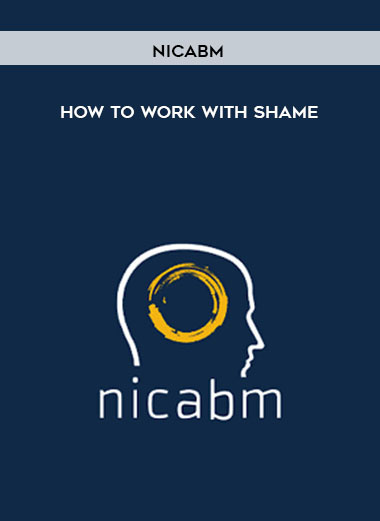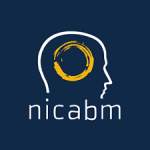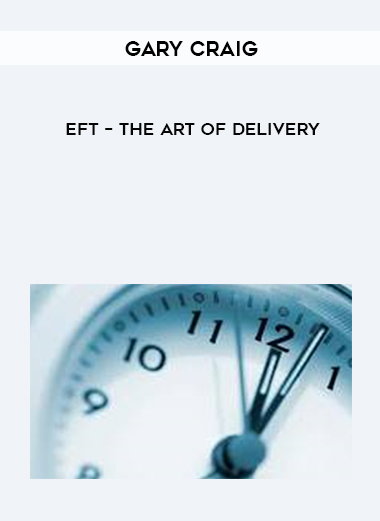NICABM – How to work with shame
Successful Ways to Work With Clients Who Struggle With Deep Feelings of Shame
When a client experiences shame, they live in constant fear of being rejected. And they become trapped in the avoidance strategies they create to escape the pain.
However, shame left untreated grows more powerful. And it can often lead our clients into behaviors that invite even greater shame.
But to effectively work with shame, we have to understand its neurobiology and why it’s so difficult to erase its deep tracing on the nervous system. We need to know why shame vigilantly protects itself, and how our traditional treatments may be sustaining shame or driving it even deeper.
That’s why we’ve brought together 19 of the top experts in our field to bring you . . .
How to Work With Shame

How to Break the Power of Shame by Engaging it
Marsha Linehan, PhD Kelly McGonigal, PhD Ron Siegel, PsyD
Joan Borysenko, PhD Bill O’Hanlon, LMFT
- The one counterintuitive technique that removes the fear of rejection from shame
- The most common type of shame (and why clients often believe they caused it)
- How to approach treatment when a client’s shame is legitimate

The Way a Shame Posture Impacts Emotions (And How to Bring Clients Out of It)
Peter Levine, PhD Bill O’Hanlon, LMFT
Ron Siegel, PsyD Kelly McGonigal, PhD
- Why a posture of shame looks identical to a posture of trauma
- How to adjust your office seating to avoid triggering your client’s shame
- A guided exercise to help bring clients out of a posture of shame

How to Work With Shame When it’s Connected to Trauma
Part 1: A Way to Heal Trauma-Based Shame Using a 3-Dimensional Space
Bessel van der Kolk, PhD Bill O’Hanlon, LMFT
- The “meaning-making” system that allows shame to take over a client’s life
- Why differentiation is so crucial in eliminating shame
Part 2: Rewiring the Body’s Reaction to Shame and Trauma
Pat Ogden, PhD Kelly McGonigal, PhD
- How attachment shame can lead to broken adult relationships
- How to pull a client out of hypoarousal when shame causes them to dissociate
- How to shift the way a client physically organizes their history of shame

How to Shift Clients Out of Feelings of Unworthiness
Rick Hanson, PhD Ron Siegel, PsyD Kelly McGonigal, PhD
Joan Borysenko, PhD Bill O’Hanlon, LMFT
- Why it’s crucial to approach shame differently for introverts and extroverts
- How to use neuroplasticity to erase the old learning that promotes shame
- Why clients need to tolerate feelings of shame before undoing them

How to Work With the Inner Voice of Shame
Richard Schwartz, PhD Joan Borysenko, PhD
- The 2-part phenomenon that creates shame
- The inner personality that you must approach first (so it doesn’t sabotage your work)
- The one thing you need to do to get the inner critic to voluntarily disarm

The 4-Part Skill That Can Build Trust With Your Client
Dan Siegel, MD Kelly McGonigal, PhD Ron Siegel, PsyD
- What happens when the hippocampus fails to integrate implicit memories
- The difficult choice point a neglected child faces that invites lifelong shame
- How to help clients release deep feelings of inner defectiveness

How to Work With Shame That Developed in Childhood
Part 1 : The Generational Effects of Shame on Loved Ones
Sue Johnson, EdD Ron Siegel, PsyD Kelly McGonigal, PhD
Joan Borysenko, PhD Bill O’Hanlon, LMFT
- The one element of shame that creates havoc in relationships
- How shame is passed on to future generations
- The parenting style that generates an inner incompetence in children
Part 2: How to Work with Shame without Retriggering It
Zindel Segal, PhD Elisha Goldstein, PhD Joan Borysenko, PhD
- Why some clients may be unaware that shame is fueling their behavior
- The first thing you should identify when treating a client’s shame
- Why it can be risky to reveal the developmental connection to your client’s shame

The Impact of Shame Messaging and How to Dismantle It
Kelly McGonigal, PhD Terry Real, MSW, LICSW
Joan Borysenko, PhD Bill O’Hanlon, LMFT
- How unrealistic standards can lay the foundation for systemic shame
- The 3-second indulgence that helps unravel inner harshness

The Neurobiology of Shame
Part 1: How Shame Triggers the Body’s Shut-Down Response
Stephen Porges, PhD
- How to avoid triggering your client’s physiological response to shame
- The one intervention that can stop the body from shutting down
- How the body’s reflexive response to shame can lead to dissociation
Part 2: How the Psychobiology of Shame Can Help Your Work
Stan Tatkin, PsyD, MFT Ron Siegel, PsyD Bill O’Hanlon, LMFT
- How the nervous system traps your client in shame
- The one thing a loved one can do to regulate their partner’s shame
- What can go wrong when the practitioner’s shame gets triggered in a session

How to Unravel the Shame in Relationships
Part 1: The Crucial Role of an Attachment Figure in Treating Shame
Sue Johnson, EdD
- The big risk a client must take to gain a corrective experience
- The one assumption about love and caring that we almost always get wrong
Part 2: How Shame in a Relationship Can Trigger PTSD
Stan Tatkin, PsyD, MFT Bill O’Hanlon, LMFT Kelly McGonigal, PhD
- How to deal with a couple when one partner feels ashamed and the other feels betrayed
- The important thing a client needs to see when coming out of a shut-down state
- The one type of shame that can lead to a partner developing PTSD
Register Here for $197
and get 14 videos, audios, and transcripts, including 2 bonuses
to help you work more effectively with a client’s shame
4 CE/CME Credits or Clock Hours are available for purchase at checkout.
Click HERE to get information about CE/CME credits and clock hours as well as speaker disclosures
“The complexity of the dynamics are addressed better in the courses you teach than I’ve seen anywhere else.”
— Carmela Wegner, MFT —

For This Short Course on How to Work With Shame, We Brought Together Some of the Top Experts in the Field

Bessel van der Kolk, MD
Neuroscientist and Professor of Psychiatry at Boston University Medical School. Author of The Body Keeps the Score: Brain, Mind, and Body in the Healing of Trauma

Marsha Linehan, PhD
Creator of Dialectical Behavior Therapy (DBT); Professor of Psychology, Adjunct Professor of Psychiatry and Behavioral Sciences at the University of Washington and Director of the Behavioral Research and Therapy Clinics

Peter Levine, PhD
Founder of Somatic Experiencing; Author of Trauma and Memory: Brain and Body in a Search for the Living Past: A Practical Guide for Understanding and Working with Traumatic Memory

Richard Schwartz, PhD
Founder of Internal Family Systems (IFS) and The Center for Self Leadership

Stephen Porges, PhD
Developer of Polyvagal Theory; Distinguished University Scientist at the Kinsey Institute at Indiana University Bloomington and Research Professor in the Department of Psychiatry at University of North Carolina Chapel Hill

Sue Johnson, EdD
Creator of Emotionally Focused Therapy (EFT); Founder and Director of the International Centre for Excellence in Emotionally Focused Therapy

Pat Ogden, PhD
Pioneer in Somatic Psychology; Founder and Director of Sensorimotor Psychotherapy Institute (SPI); Co-founder of the Hakomi Institute; Author of Sensorimotor Psychotherapy: Interventions for Trauma and Attachment

Shelly Harrell, PhD
Licensed Psychologist specializing in multicultural and community psychology; A Professor with the Pepperdine Graduate School of Education and Psychology

Dan Siegel, MD
Executive Director of the Mindsight Institute; Co-Director of UCLA’s Mindful Awareness Research Center; author of Mindsight: The New Science of Personal Transformation and The Mindful Therapist: A Clinician’s Guide to Mindsight and Neural Integration

Rick Hanson, PhD
Senior Fellow of the Greater Good Science Center at UC Berkeley; New York Times bestselling author of Hardwiring Happiness and Buddha’s Brain

Elisha Goldstein, PhD
Co-Founder of The Center for Mindful Living in West Los Angeles; Author of Uncovering Happiness: Overcoming Depression with Mindfulness and Self-Compassion

Joan Borysenko, PhD
Founder of Mind/Body Health Sciences LLC; Author of New York Times Bestseller Minding the Body, Mending the Mind

Zindel Segal, PhD
A founder of Mindfulness-Based Cognitive Therapy (MBCT); Professor of Psychology at the University of Toronto

Ron Siegel, PsyD
Assistant Clinical Professor of Psychology, part time, Harvard Medical School; Author of The Mindfulness Solution: Everyday Practices for Everyday Problems and Sitting Together: Essential Skills for Mindfulness-Based Psychotherapy

Laurel Parnell, PhD
Leading expert in Eye-Movement Desensitization and Reprocessing (EMDR); Author of Attachment-Focused EMDR: Healing Relational Trauma

Kelly McGonigal, PhD
Health psychologist and lecturer at Stanford University; Author of The Upside of Stress: Why Stress Is Good for You and How to Get Good At It and The Willpower Instinct: How Self-Control Works, Why It Matters, and What You Can Do to Get More of It

Bill O’Hanlon, LMFT
Co-developer of Solution-Oriented Therapy; Psychotherapist, speaker, and author of Do One Thing Different: Ten Simple Ways to Change Your Life

Stan Tatkin, PsyD, MFT
Founder of the PACT Training Institute and developer of a Psychobiological Approach to Couple Therapy (PACT)

Terry Real, MSW, LICSW
Founder of the Relational Life Institute; author of I Don’t Want to Talk About It: Overcoming the Secret Legacy of Male Depression and The New Rules of Marriage: What You Need to Make Love Work

Course Director
Ruth Buczynski, PhD
Here’s What You’ll Get:
Everything is yours to keep forever in your professional library
| Downloadable videos so you can watch at your convenience, on any device | |
| Audio recordings you can download and listen to at home, in the car, at the gym or wherever you like | |
Reviews (0)
Shipping & Delivery
Sign in
No account yet? Create an Account Start typing to see products you are looking for.
|



































Reviews
There are no reviews yet.